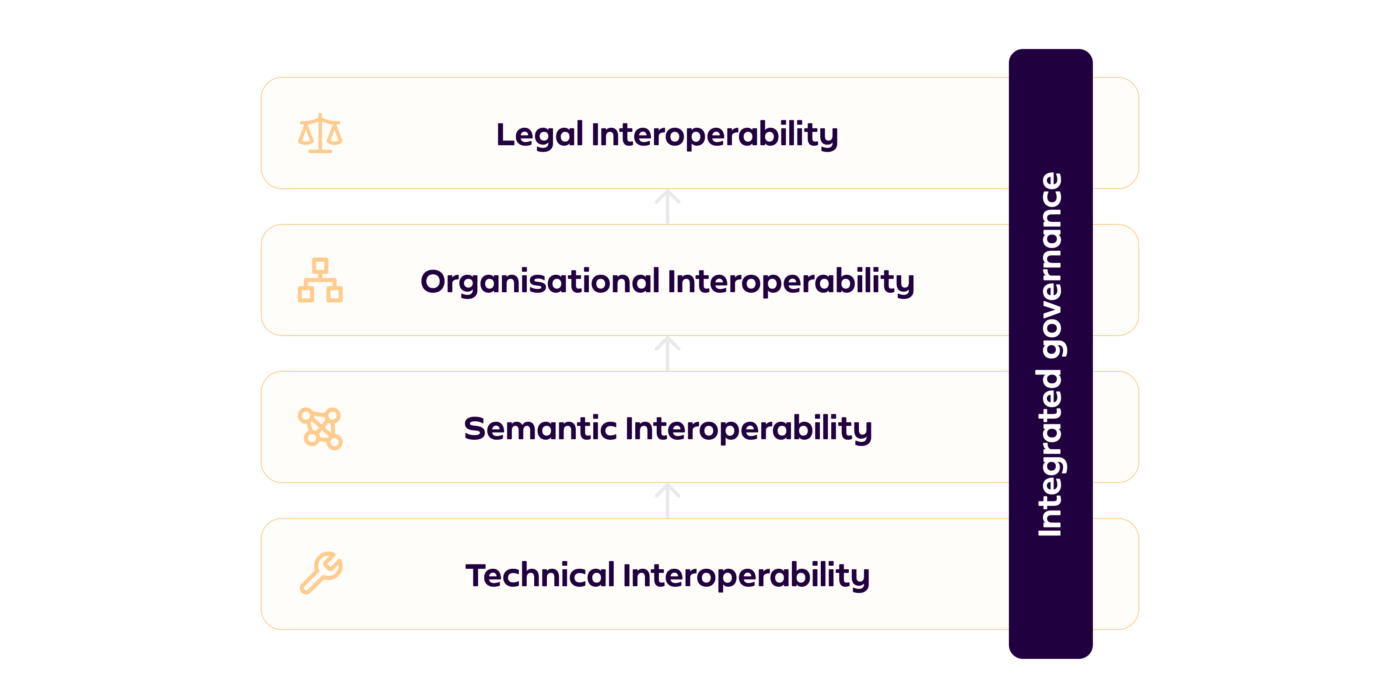Accelerating go-to-market for new data applications
Smart, innovative data applications respond to a growing social and economic need. They should also adjust to a new reality in which companies and consumers want control over what happens to their data. Our company's ambition is to guide and accelerate this transformation toward a new European platform economy.
We do this by lowering the barriers to entry for businesses in a variety of ways:
- As a neutral party, we bring organisations together across sectors, create trust and provide more complete solutions to specific problems.
- Our solutions are fully aligned with the four levels of interoperability as defined by the European Commission. They are, of course, also in line with the prevailing legal frameworks at the regional, national and European levels.
- We are 'leading by example' as we set up new data-driven ecosystems on the strength of a positive business case and with every participant getting a clear, sustainable 'win'.
Interoperability warrants data collaboration
Our solutions are based on data becoming exchangeable between the different actors in the ecosystem of European data spaces. We must warrant technical, semantic, organisational and legal interoperability to ensure this. Therefore, the following types of interoperability are needed to ensure seamless cooperation between the different actors in the ecosystem within Athumi’s integrated governance.
